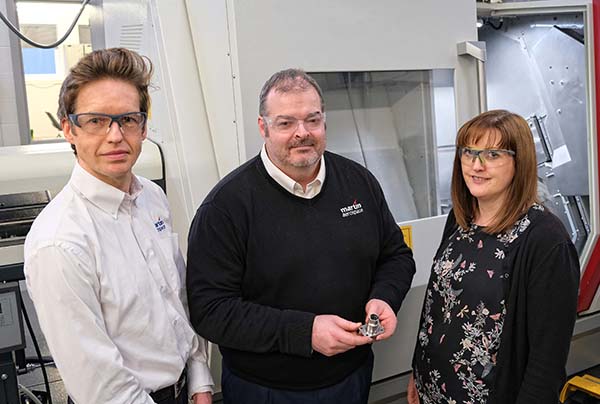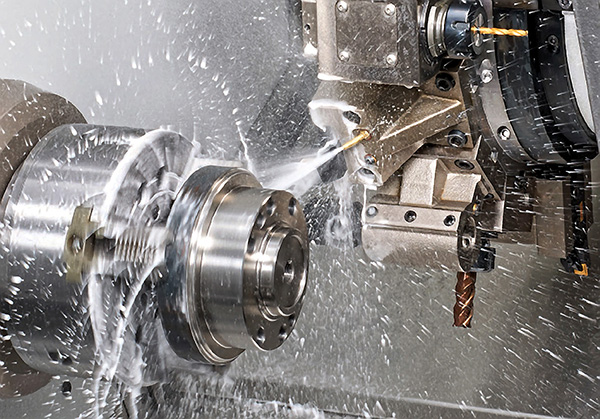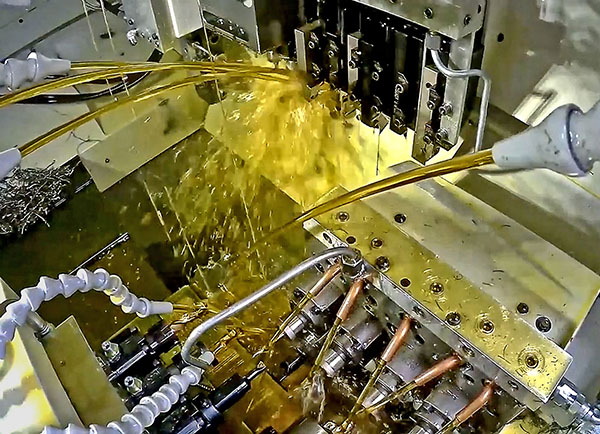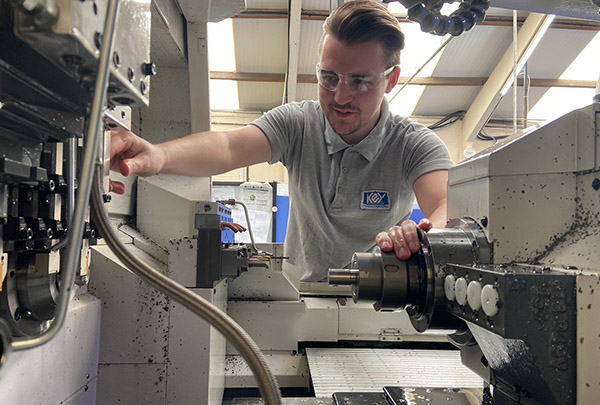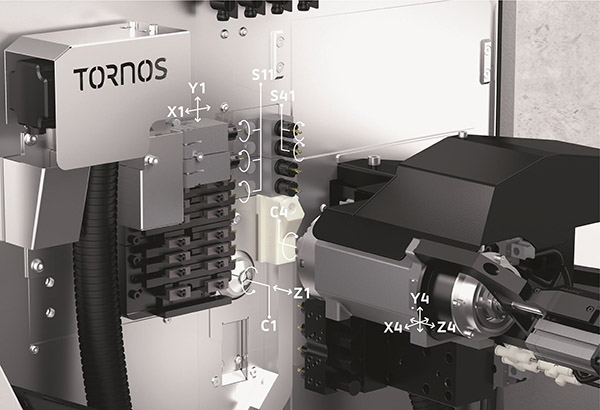If a manufacturer plans to carry out rigorous turning of demanding materials, such as titanium and nickel alloys, care has to be taken to select rigid, powerful lathes.

This factor is especially the case if the intended applications require sliding-head turn-milling, as these platforms tend to be less robust than fixed-head lathes. With this in mind, Lanark-based aerospace manufacturer Martin Aerospace, selected a German-built Traub TNL32-9P for its latest investment in sliding-head technology.
Supplied by Kingsbury, the machine started producing aerospace parts from tough alloys 24/5 from the beginning of 2018. It has been so successful at fulfilling an ongoing contract for producing aero engine components from titanium, Inconel and stainless steel that the business had no hesitation in returning to the same source for a fixed-head lathe. Installed in July 2019, the Traub TNX65 produces parts from Inconel and Nimonic for the same customer.
Both lathes have reduced multiple operations to one-hit production, making it much easier to hold the required tolerances, which are generally to within ±0.01 mm, although one pin diameter has to be turned on the sliding-head lathe to ±4 µm. At the same time, process cycles have been shortened, by over 90% in one case on the TNL32-9P and by typically 70% on the TNX65. Such significant savings are partly a result of the ability on both machines to have three tools in cut simultaneously, each having a different feed rate for optimum metal removal.
Neil Lawson, operations director at Martin Aerospace, says: “Both machines are ideal for the efficient production of parts in high volumes from tough materials, and are platforms for continuous process improvements. This has allowed us to secure additional work, as we are able to provide significant savings to our customers.”
For further information www.kingsburyuk.com






